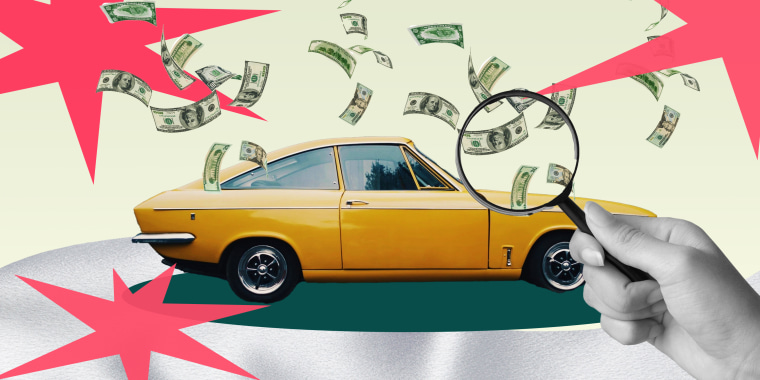In the 17 years since I’ve had my license, I have driven three cars. The first was a 1998 Toyota Camry that my parents were generous enough to give me. The second was a 2001 Honda Civic that I bought on Craigslist for $1,800 (it was an incredible car at that price and we sold it two years later for $1,700). By the time I went looking for my third car, I wanted — and could finally afford — something a little newer, so it was the first time I went to a car dealership to get a new-to-me ride.
On the way to the car dealership that day, my husband turned to me and said he wanted to try his hand at negotiating. When we got there and finally got situated in a sales office, the guy at the dealership slid a post-it note across the table with $16,500 written on it.
“That’s how much we can do today for the Honda Fit,” the sales guy said. My husband didn’t even take a breath.
“OK, yeah that sounds good,” he replied. I stared at him. What?! We tell this story at dinner parties all the time now, but we (thankfully) didn’t drive off with a car that day because we totally messed up the negotiating process.
Moral of the story: When the sales guy hands you a price tag to kick off negotiating, you don’t immediately agree to pay that price.
Here are four other pieces of advice for when it’s time to get a new car:
1. Do your research!
The only test is the one you’re putting the salesperson through, so if you need to bring notes, fine! Find out the Kelley Blue Book or Edmunds value of the cars you’re interested in. Research the fair market price for the cars you’re planning on testing out. Ask for an accident history report on the car if you’re at a used car lot. Do a search for the lemon laws in your state so you’re prepared in the event you end up with a lemon!
2. Don’t be too enthusiastic on the outside, even if you’re super excited on the inside.
You do not need a car that day, but the salespeople do need to sell cars every day. If you’re overeager, you may not get the best price because the salesperson will sense that you want the car no matter what.
3. Talk to your bank about an auto loan before going to the car dealership.
Car dealerships will offer a loan based on your credit and what you’re willing to put down on the car you’re going to buy. But if you go to your bank ahead of time, you can say that you’re not going to take the car dealership’s loan because the bank offered you a lower annual percentage rate, or APR. If you’re lucky, the dealership will be able to offer you an even lower APR than the bank. It's good to be prepared; it will give you more tools to pull out in the negotiation.
4. Walking away is a POWER MOVE.
If you have a price you want to pay, don’t budge from that price. Instead, thank the car salesperson for their time and head out. They will likely either stop you from leaving and work with you to get that price (they need your sale, remember?) or they’ll call you the next day and tell you to come back and make a deal.
After we totally screwed up the negotiating process, we decided to go into our car purchasing appointment a few weeks later with a game plan. We had done the research and found the price range that we’d be willing to pay for a 2015 Honda Fit.
We were also willing to walk away if we couldn’t make a deal — we were not desperate to drive off the lot that day. With some back and forth and holding to our number, and letting them know kindly, “No big! We’ll walk and try somewhere else," we landed on a very reasonably priced car that day and we came with a great APR loan from our bank.
Having all of the answers before we had any questions helped keep us totally in control of the process — exactly what you want when making a purchase this big.



